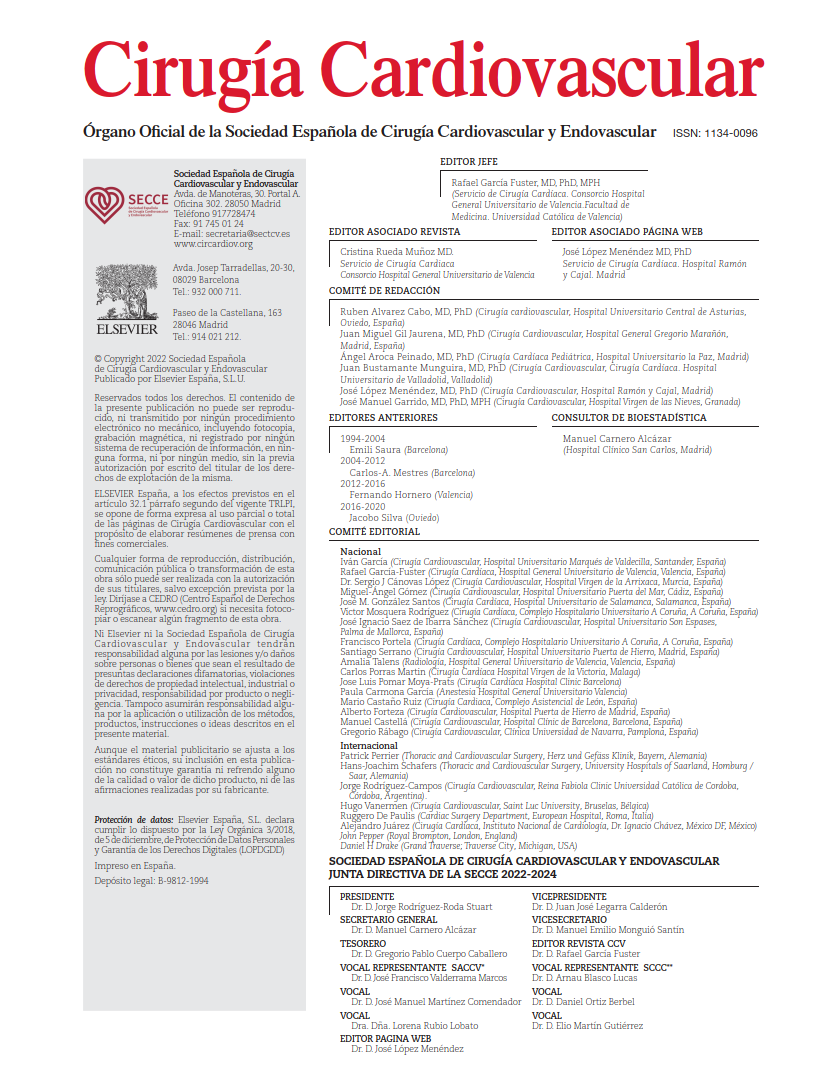
Impact of the TRI-SCORE on valve surgery for tricuspid regurgitation
This article examines the impact of the TRI-SCORE on surgical outcomes compared to conservative management for severe functional tricuspid regurgitation. It evaluates survival according to risk categories based on this scoring system using data from the TRIGISTRY registry.
Multiple arterial revascularization through mini-thoracotomy: science fiction or imminent future?
A single-center, prospective five-year experience in multiple arterial revascularization through mini-thoracotomy, exclusively employing arterial grafts. The analysis includes clinical characteristics, adverse events, and short- and mid-term mortality.
Renal impact of Impella CP® use in the DanGer Shock substudy
The DanGer Shock clinical trial substudy analyzes the relationship between the use of the microaxial flow pump (Impella CP®) and renal dysfunction in patients with cardiogenic shock secondary to myocardial infarction.
Implantation of Impella 5.5 devices: revolutionizing survival in cardiogenic shock.
Introduction and Update on Clinical Experience with Impella 5.5 at the Hospital Universitari i Politècnic La Fe
Should current age recommendations for the use of bioprostheses in the mitral position be reconsidered?
A multicenter retrospective study addressing the durability of mitral bioprostheses across different age groups, aiming to determine their longevity and the risk of reintervention in younger patients.
Update on cardiac tumors
This article provides an updated review on cardiac tumors, focusing on their classification, epidemiology, clinical manifestations, diagnostic methods, and therapeutic strategies. It delivers a clear synthesis that is highly valuable for daily clinical practice.
Aortic arch repair: open surgery or endovascular?
A multicenter retrospective study including 1052 patients treated across six Japanese centers. This study aimed to evaluate which of the two techniques—conventional surgery or endovascular repair—delivers better outcomes based on patient profiles and anatomical characteristics.
State-of-the-art in sutureless aortic valve replacement: where do we stand?
Critical evaluation of the methodology and results of the review published in JACC on the main studies investigating the efficacy and safety of sutureless aortic prostheses compared to conventional aortic valve replacement.

